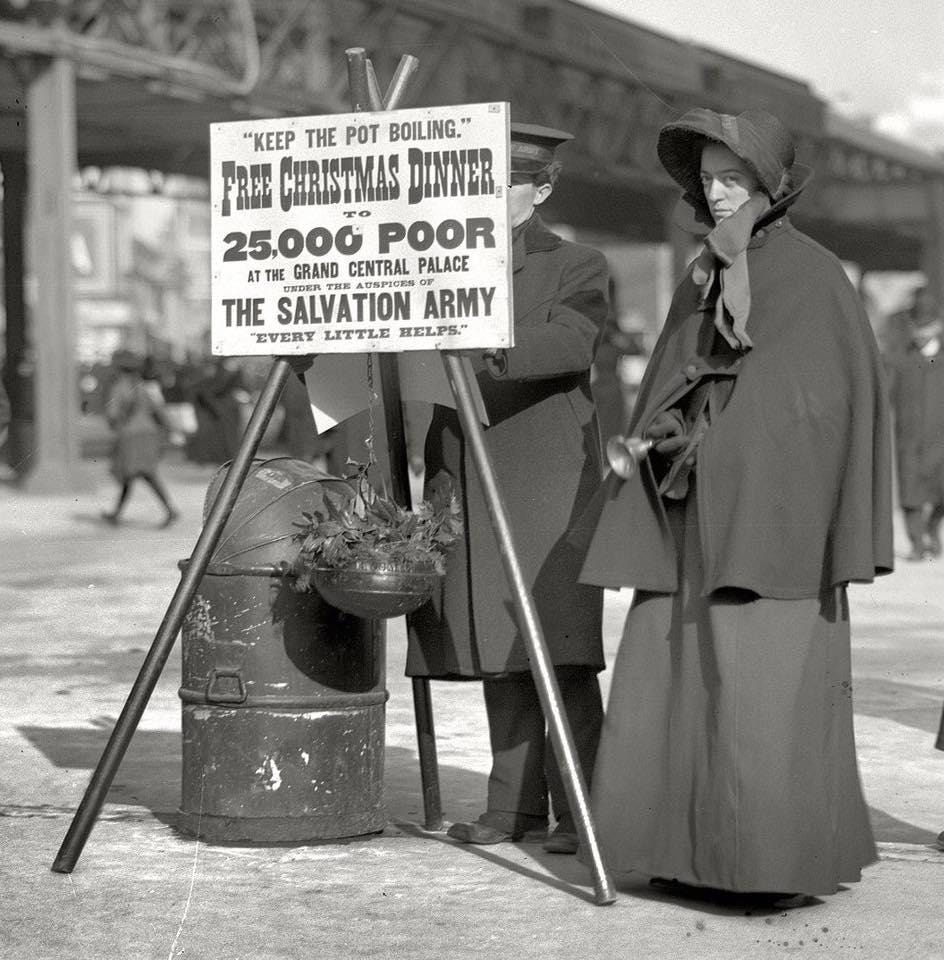Martin Luther, Christmas, and the Poor
Would Luther Stand Ringing a Bell Outside Walmart?
Martin Luther’s teachings on social responsibility and the effects of the Gospel on culture have suffered misrepresentation by scholars. Carter Linberg claims this is due mostly to Ernst Troeltsch’s misinterpretation of Luther in his massively influential The Social Teaching of the Christian Churches (1912). Troeltsch’s skewed take on Luther was propagated by Reinhold Niebuhr (Carter Lindberg, Beyond Charity, 161). But Luther was keenly aware of social issues and especially the issue of poverty. In his sermons for the Sundays in Advent, Luther stridently claims that charity must characterize the Christian life throughout the year, and not just at Christmas. He argues that faith without works is dead, and presents our care for the poor as the prime test case of whether we have true faith or not.
I wrote about this recently over at the SALVO blog: “Whence the Christmas Spirit: Martin Luther on Christmas Charity”. This post continues the theme.
I’m reading through the sermons of Martin Luther, and in his sermon for the “Third Sunday in Advent” Luther emphasizes the priority of faith: “In order to keep your faith pure, do nothing else than stand still, enjoy its blessings, accept Christ’s works, and let him bestow his love upon you” (Sermons of Martin Luther, vol. 1, 110). But although we are saved by faith alone, faith can never be alone. It always results in good works. Since Luther’s sermon text is Matt. 11:2-10, which includes mention of the poor having good tidings proclaimed to them, Luther stresses care of the poor and needy as one of the most important ways that we manifest saving faith:
“For God demands of us no other work that we should do for him than to exercise faith in Christ … After this think of nothing else than to do to your neighbor as Christ has done to you, and let all your works together with all your life be applied to your neighbor. Look for the poor, sick and all kinds of needy, help them and let your life’s energy here appear, so that they may enjoy your kindness, helping whosoever needs you, as much as you possibly can with your life, property and honor” (Sermons of Martin Luther, vol. 1, 111).
Additionally: “But know that to serve God is nothing else than to serve your neighbor and do good to him in love, be it a child, wife, servant, enemy, friend; without making any difference, whoever needs your help in body or soul, and wherever you can help in temporal or spiritual matters. This is serving God and doing good works” (Sermons of Martin Luther, vol. 1, 111).
Even more strongly: “If you do not find yourself among the needy and the poor, where the Gospel shows us Christ, then you may know that your faith is not right, and that you have not yet tasted of Christ’s benevolence and work for you” (Sermons of Martin Luther, vol. 1, 111-112).
All this shows that Luther did not teach that our works are meaningless. Our works show our faith. And the works that especially manifest the Gospel of grace is our love and service for those who don’t deserve our love, mercy or grace. Serving and helping the poor reminds us of our own poverty, and our own neediness.
In many churches, and in most neighborhoods, this is hard to do. We keep the poor (just like sick and the dying) huddled in their own bad neighborhoods, trailer parks, or somewhere “out there” in Africa. Churches tend to attract people of the same socio-economic class. We have to go out of our way to find and meet the poor. Or, if we live in Portland or New York, the poor are in tents along every freeway, or clogging up the sidewalks. The magnitude of the problem is daunting. We feel helpless, scared to give drug money to the panhandlers.
But I doubt Luther would accept these excuses. There were many similar problems with mendicant beggars in the sixteenth century. Luther would urge us to get out of our comfortable grooves, find one person, love and help them in a wise and strategic way, and then keep doing that for someone else. This sort of love for the poor was unknown in the ancient, classical world, and is a direct result of Christianity. Care for the poor has always characterized Christian witness throughout the ages.
So, Luther might have stood outside Walmart ringing a bell, but it’s more likely that he would have gone out and invited the poor man into his house for dinner. After all, that’s what the Incarnation is all about. Jesus, the Maker and Ruler of the Universe, entered into our poverty, moved into our neighborhood, and fed poor and weary sinners like you and me.
Merry Christmas!


